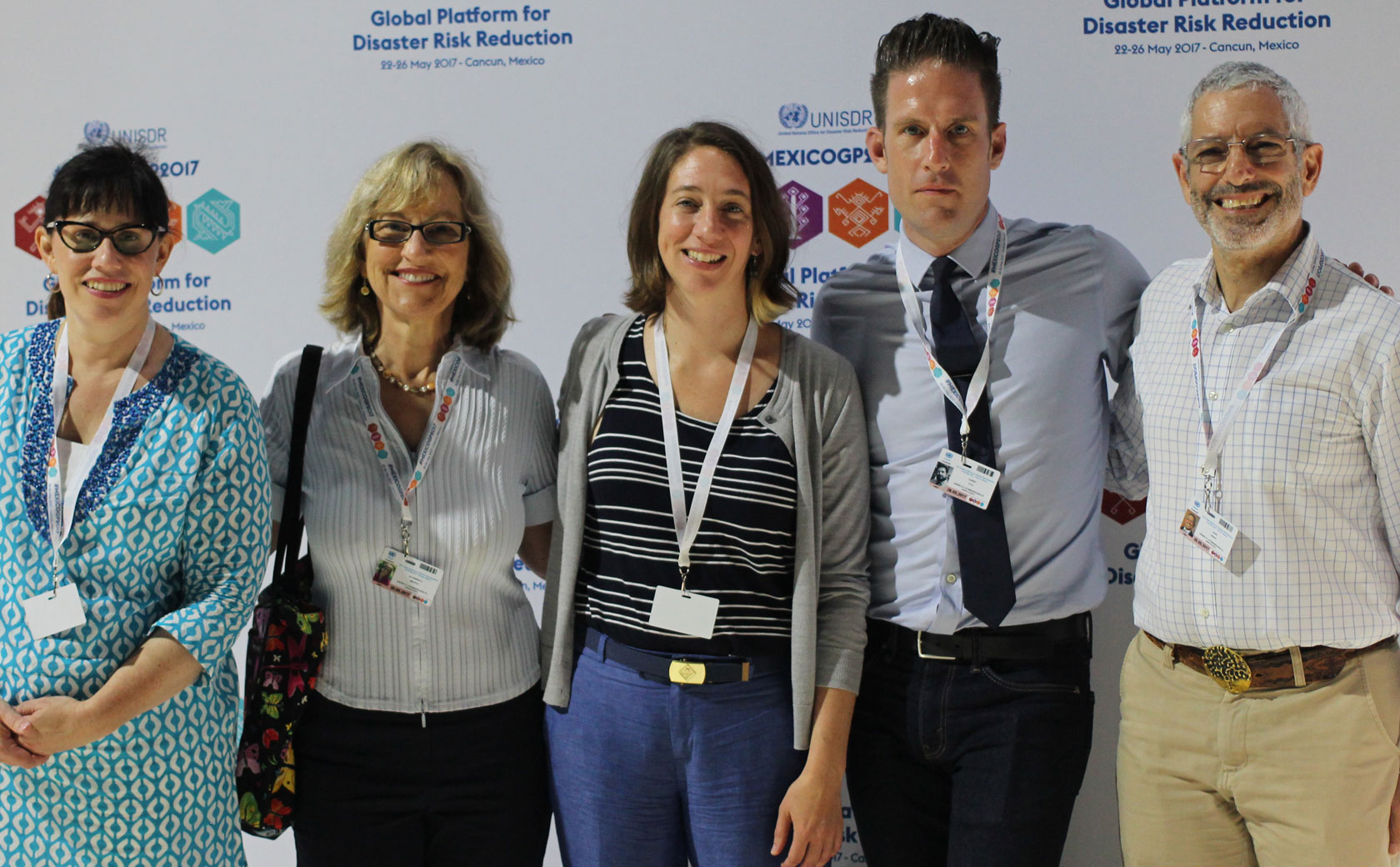In January 2017, I co-founded and continue to co-direct the Culture and Disaster Action Network (CADAN), an initiative to link scholars and practitioners with a shared mission to reduce suffering in disaster contexts.
We are a group of social scientists and practitioners interested in working to build and integrate cultural comprehension into the work of disaster management. We are trained in applying anthropological methods to help identify and explain cultural differences in local communities that are likely to be critical for success in disaster risk reduction and recovery. We also consider critical the way that organizational cultures of outside groups can be understood in order to help smooth the work of mitigation, preparedness, or recovery in local settings.
The CADAN network provides disaster professionals in government, NGOs, non-profits, and the private sector a way to connect with researchers and educators from academic institutions, work on innovative ideas, identify collaborators, and create partnerships. The network is made up of senior experts in policy development, recovery planning, social services, housing, environment/natural resource management, economic development, public administration, inter-governmental relations, disaster philanthropy, and non-profit management. CADAN team members are skilled in the application of social science tools in disaster management contexts, such as post-disaster needs identification, social impact assessment, and social vulnerability/community risk assessment, etc.
Some of our projects to date include the following:
GLOBAL PLATFORM FOR DISASTER RISK REDUCTION, May 2017. Cancun, Mexico
United Nations International Strategy on Disaster Reduction (UNISDR)
United Nations International Strategy on Disaster Reduction (UNISDR)
- National Science Foundation-funded Participation – A group of 5 CADAN scholars and practitioners got funding to attend the week-long event. I helped lead an on-stage presentation to develop and introduce our new approach, what we call “Culture-based DRR.”
-
- Rapid Ethnographic Study –The CADAN team developed a methodology for conducting a series of rapid qualitative interviews with a sample of attendees. We conducted 40 in-depth interviews with practitioners from a wide range of international NGO’s organizations. Our goal was to learn how current disaster aid, DRR policies and policy implementation strategies recognize cultural diversity and the extent to which cultural considerations play a role in their work. We are currently analyzing these interviews with the intention of sharing our results with international NGOs and international disaster professionals.
-
NATURAL HAZARDS WORKSHOP, 2017. Boulder, Colorado
Cultural Training Exercise: Interactive Session to Introduce Role of Culture in Successful Recovery– A team of 5 CADAN members composed of practitioners and academics collaborated to prepare and deliver an interactive training program for audience of practitioners and academics. Hazards Center director reported very high impact of this session as indicated in conference attendee survey forms. CADAN network now developing curriculum unit for advancing disaster research and application.
FEMA-FUNDED WORKSHOP, WEBINAR, AND RESEARCH REPORT, 2018-2019.
Workshop, Webinar and Research Report co-led by CADAN members Browne (academic) and Olson (practitioner/academic), co-authored with CADAN members and practitioner and academic colleagues. (See “Applied Work” Project page for details.)
SAMPLE OF CADAN HANDOUTS:
CADAN CV
Culture-based DRR handout, Copyright © 2017 – CADAN
(prepared for and distributed at the UN Global Platform for Disaster Risk Reduction, Cancun Mexico, May 2017.)
(prepared for and distributed at the UN Global Platform for Disaster Risk Reduction, Cancun Mexico, May 2017.)
Culture and Recovery handout, Copyright © 2017 – CADAN
(prepared for and distributed at Natural Hazards Center interactive session, July 2017.)
(prepared for and distributed at Natural Hazards Center interactive session, July 2017.)
For more about CADAN’s network mission, approach, case studies, our experience with policy and practitioner projects, or information about our network members and our advisory board, please visit our CADAN website:
